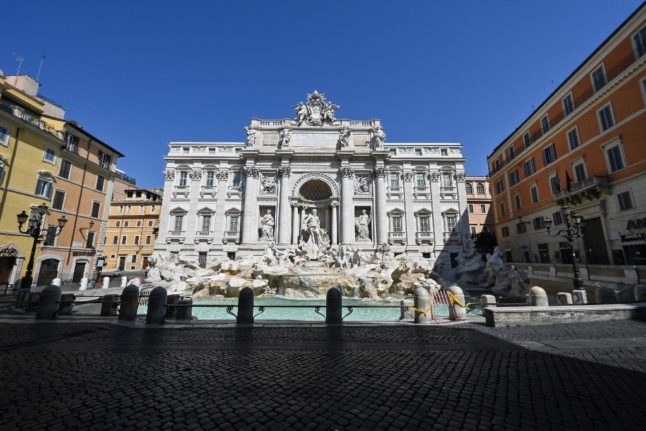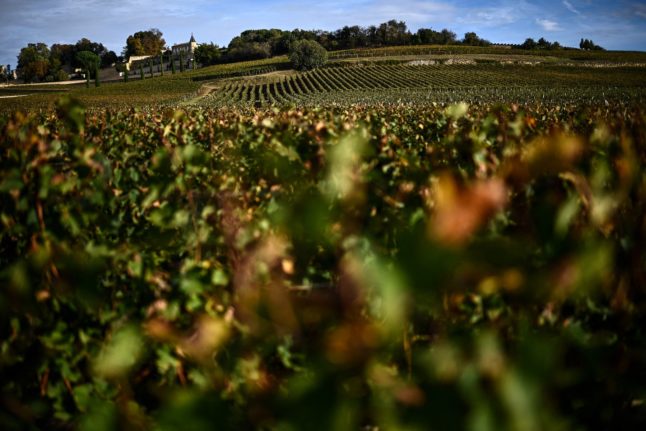Climate activists in Italy turned Rome’s famous Trevi Fountain black on Sunday, saying floods that have killed 14 people in the country’s northeast were “a warning”.
Activists from the anti-climate change organisation Last Generation climbed into the landmark fountain and poured a vegetable-based carbon liquid into it, before being escorted away by police.
READ ALSO: Italy’s flood death toll rises to 14 as government urged to act on climate
The Trevi Fountain’s most iconic moment saw Swedish actress Anita Ekberg go for a dip in Federico Fellini’s film ‘La Dolce Vita’.
The protest came as Prime Minister Giorgia Meloni arrived in Emilia Romagna to visit areas devastated by floods described as the worst in a century after six months worth of rains fell in 36 hours.
Over 36,000 people have been displaced by the disaster, with costs in the hundreds of millions of euros.
Mattia, 19, who did not give his last name, was cited as taking part “because the horrible tragedy experienced in these days in Emilia Romagna is a forewarning of the black future that awaits mankind”.
Last Generation began carrying out peaceful but disruptive protests in Italy last year ahead of the general election, urging politicians from all parties to make climate change their priority.
The protests in Italy are part of a series of actions across Europe to focus attention on climate change.
Activists have thrown soup, cake, mashed potatoes or washable paint at heritage and culture sites and artworks in museums.



 Please whitelist us to continue reading.
Please whitelist us to continue reading.
Member comments